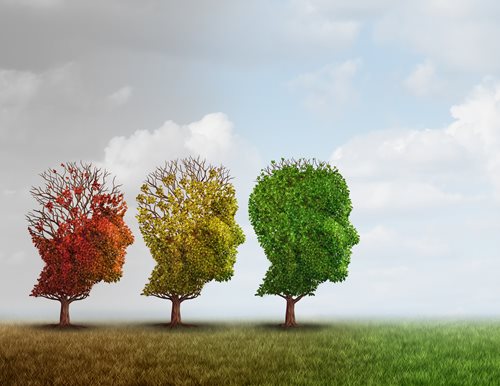May 15, 2017
By Chacku Mathai, CPRP
A man diagnosed with schizophrenia was in a psychiatric hospital being considered for release. He sat in front of a team of psychiatrists who asked him the usual questions: Have your symptoms improved? Are you ready to leave? What do you plan to do?
It was his answer to that last question that surprised them, “I want to do scientific research on schizophrenia.” Their response? Delusions of grandeur.
“And start self-help groups,” More delusions, they wrote in their charts. “And write a book.” he added.
They told him to be more realistic, “You’ve been in and out of mental hospitals for seven years.”
The next time he was up for a review, the treatment team once again asked him what he wanted to do. He realized that his original ideas would not get him out of the hospital. He needed to offer them something they thought he was capable of. He replied: “Office work.” They accepted this response and sent him to a different ward.
In this new ward, he was told by a young psychologist, “I read your chart. Don’t give up your delusions of grandeur. Those are your goals.”
After being released from the hospital, Dr. Ed Knight did what he said he was going to do. He started hundreds of self-help groups all over New York and founded an organization called the Mental Health Empowerment Project, run by people just like him. People like me, who have been through or are still going through serious mental health and substance use issues.
Until recently, families were informed that most of the time, people diagnosed with serious mental illnesses, particularly schizophrenia, followed a deteriorative course—that we would get worse over time, not better.

In the last several decades, however, several sources have demonstrated that those of us struggling with the most disabling conditions can and do recover. In fact, rates of recovery are much more common than the deteriorating course once thought to characterize the experience of mental illness. The value of recovery and recovery-oriented mental health systems is now widely accepted and is well- documented.
Although recovery is different for everyone, a consensus definition was developed by people with lived experience and introduced by the Substance Abuse Mental Health Services Administration (SAMHSA). They defined recovery as a process of change through which individuals improve their health and wellness, live self-directed lives and strive to reach their full potential.
SAMHSA also delineated four major dimensions that are viewed as important to recovery:
This definition includes recognition that those of us who are diagnosed with mental health conditions can live, learn, work and socialize successfully and meaningfully in our communities. For many people, as suggested by several longitudinal studies, recovery can also include more specific criteria such as no longer showing any signs or symptoms of mental illness and even discontinuing or decreasing the use of medications.
The Mental Health Empowerment Project (MHEP), over 30 years after Dr. Knight started it, continues to be a fully peer-run, grassroots organization and is one of many great examples of recovery and peer support across the country. Organizations like MHEP offer a diverse array of innovative and evidence-based peer support and advocacy in their communities—offering hope for recovery and a meaningful life. Unfortunately, peer support and peer-run organizations are not yet available in every community.
NAMI believes every community needs the hope and support offered by these organizations. And it is the aim of National Technical Assistance Centers such as the NAMI STAR Center, to encourage every state to support the development and sustainability of peer- and family-run organizations in local communities.
The STAR Center is a National Technical Assistance Center, funded by SAMHSA, offering technical assistance to peer- and family-run organizations so they can be sustainable resources for states and territories across the United States. The STAR Center currently supports states and territories in two regions:
Our hope is to provide support for recovery in every community. People can and do recover. If society tries to convince you that recovery is rare or unlikely, just look to Dr. Knight’s story and those of us involved with peer-run organizations as an example. We know today that the best approach to healing and recovery is to discover and support a person’s hopes and dreams. Our delusions of grandeur just might be our goals.
If you’re interested in getting involved with the STAR Center, join us for a free webinar on May 16, and a live-stream interview with Dr. Knight on August 9. Check our Upcoming Events page, sign up for our newsletter through our STAR Center home page or just check us out on Facebook, Twitter, YouTube, Instagram.
We’re always accepting submissions to the NAMI Blog! We feature the latest research, stories of recovery, ways to end stigma and strategies for living well with mental illness. Most importantly: We feature your voices.
LEARN MORENAMI HelpLine is available M-F, 10 a.m. – 10 p.m. ET. Call 800-950-6264,
text “NAMI” to 62640, or email. In a crisis, call or text 988 (24/7).